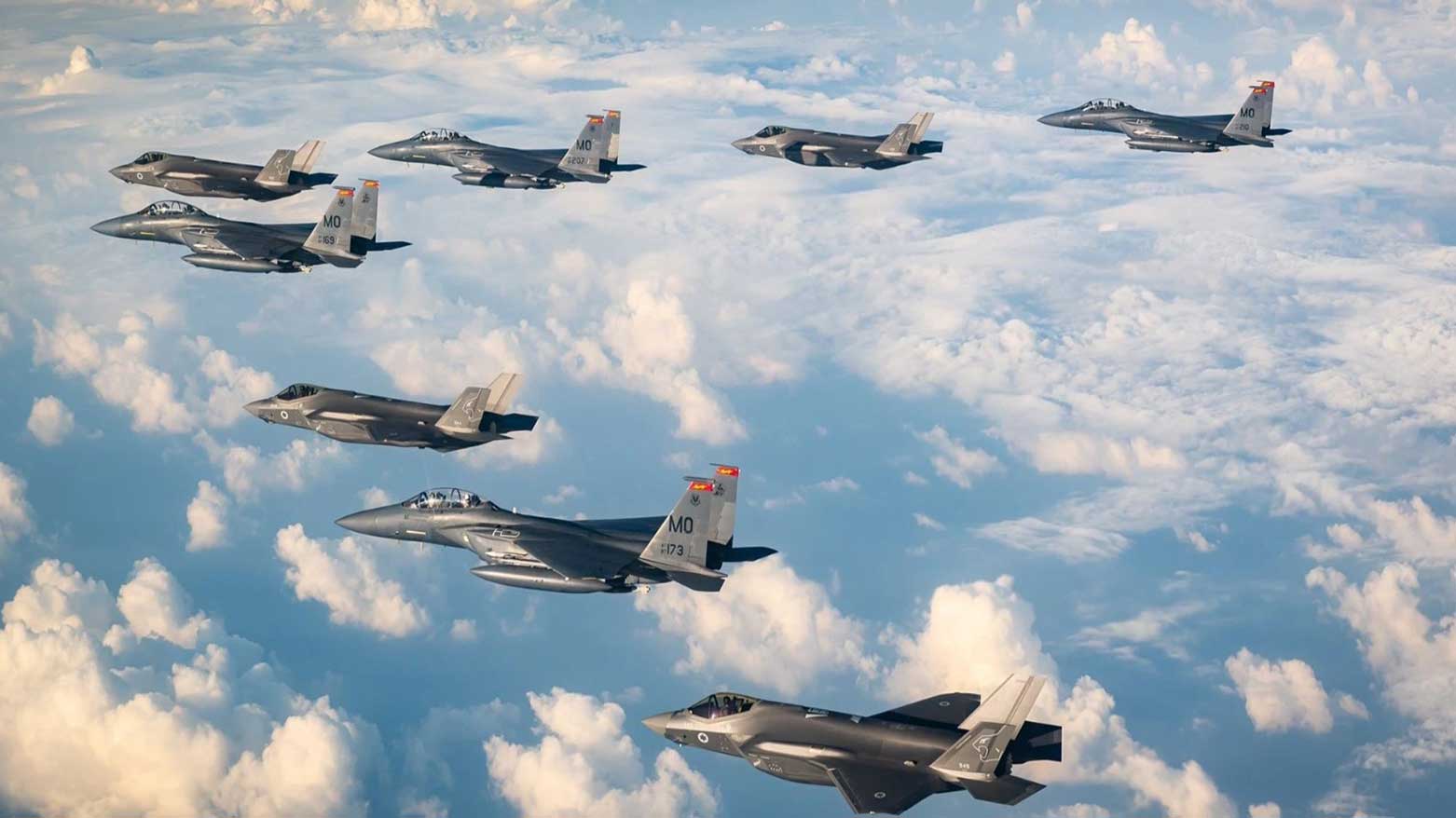20 Israeli Jets Drop 50 Bombs on Yemen After Houthi Missile Hits Tel Aviv Airport
"Attacks by the Houthis emanate from Iran. Israel will respond to the Houthi attack against our main airport AND, at a time and place of our choosing, to their Iranian terror masters," Netanyahu wrote on X.

ERBIL (Kurdistan24) — Israel launched airstrikes on Yemen late Monday in retaliation for a ballistic missile attack by Houthi rebels that struck near the perimeter of Ben Gurion International Airport a day earlier, injuring six people and causing temporary flight suspensions.
According to the Israel Defense Forces (IDF), approximately 20 fighter jets conducted a large-scale bombing campaign on Houthi-controlled targets in the western Yemeni port city of Hodeidah and the nearby Bajil district. The operation, involving intelligence aircraft and aerial refuelers, dropped 50 munitions on what Israel described as critical infrastructure used by the Iran-backed group.
The IDF said the targeted Hodeidah port serves as a conduit for Iranian weaponry and military equipment intended for attacks on Israel, while the Bajil concrete plant was identified as an economic and military asset used to build tunnels and fortifications.
"This strike was conducted in response to repeated missile and UAV attacks launched by the Houthi terrorist regime against Israeli civilians and territory," the Israeli military said, adding that this was the sixth Israeli strike in Yemen since the Gaza war began in October 2023, and the first since January.
⭕️IAF fighter jets struck Houthi terror targets, along Yemen's coastline.
— Israel Defense Forces (@IDF) May 5, 2025
The strike was conducted in response to the repeated attacks by the Houthis against Israel, during which surface-to-surface missiles and UAVs were launched toward Israeli civilians.
The terrorist… pic.twitter.com/RSihcuin0Q
Footage from the scene showed a large fire at the Bajil concrete factory. The Houthi-run health ministry reported that at least 21 people were wounded in the Bajil attack.
Yemen’s Houthi-run Al-Masirah television described the airstrikes as part of a “US-Israeli aggression,” claiming the operation was a joint raid. However, according to AFP, a U.S. defense official, speaking anonymously, denied any American involvement in the Israeli strikes, stating unequivocally: “US forces did not participate.”
Earlier reports from the Houthis also alleged that American airstrikes had hit other locations, including Sanaa and Al-Jawf, though these claims could not be independently verified.
The escalation follows a rare and significant development: a hypersonic ballistic missile launched by the Houthis struck within the security perimeter of Ben Gurion Airport near Tel Aviv on Sunday—the first such direct hit confirmed by Israeli officials. The blast left a deep crater near a parking area and injured six people, prompting some international airlines, including SWISS, to suspend flights.
The Houthis claimed responsibility for the strike, vowing to continue targeting Israeli airports to impose a "comprehensive air blockade." They said their actions were taken in solidarity with Palestinians amid the ongoing Gaza war.
Israeli Prime Minister Benjamin Netanyahu vowed a forceful and sustained response against both the Houthis and Iran, their primary backer. “It will not happen in one bang, but there will be many bangs,” he warned in a video message, signaling continued Israeli military action.
"Attacks by the Houthis emanate from Iran. Israel will respond to the Houthi attack against our main airport AND, at a time and place of our choosing, to their Iranian terror masters," Netanyahu wrote on X.
President Trump is absolutely right!
— Benjamin Netanyahu - בנימין נתניהו (@netanyahu) May 4, 2025
Attacks by the Houthis emanate from Iran. Israel will respond to the Houthi attack against our main airport AND, at a time and place of our choosing, to their Iranian terror masters. pic.twitter.com/eO4hyUzNsI
Iran denied involvement in the missile launch, calling it an "independent decision" by the Houthis. However, Tehran warned of "consequences" should Israeli or U.S. forces attempt to strike Iranian territory.
Tensions in the region remain high as Israel signals its readiness for continued retaliatory operations, while the Houthis threaten further escalation targeting Israel’s critical infrastructure.
20 Israeli Jets Drop 50 Bombs on Yemen After Houthi Missile Hits Tel Aviv Airport!
— Kurdistan 24 English (@K24English) May 6, 2025
"Attacks by the Houthis emanate from Iran. Israel will respond to the Houthi attack against our main airport AND, at a time and place of our choosing, to their Iranian terror masters," Netanyahu… pic.twitter.com/GJyBamNWUH
